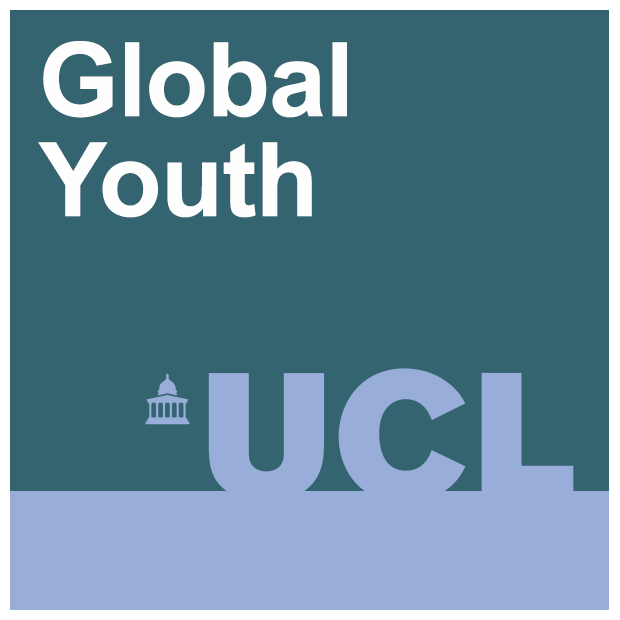Webinar on Precarity, youth and the city – 20th October 2021
By UCL Global Youth, on 8 October 2021
To view a recording of this webinar, visit our Youtube channel.
The first webinar in our Youth and the City webinar series takes places on Wednesday, 20th October from 12 noon – 1pm (UK time). This webinar will focus on the theme of precarity, and will feature research from London and Nairobi.
To register for this event and receive a Zoom link for the webinar, visit our Eventbrite page. The webinars will also be recorded and later posted on the CGY YouTube channel for those who cannot attend during the live session.
Presentation 1: ‘Press-ganged’ Generation Rent: Youth homelessness, precarity and poverty in East London
Paul Watt, Professor of Urban Studies in the Department of Geography at Birkbeck, University of London.
This paper examines youth homelessness, precarity and poverty via a critical account of ‘Generation Rent’ – that young people are living in the private rental sector (PRS) in perpetuity having been locked out of both homeownership and social renting. The post-2008 crash period has witnessed a profound transformation in young people’s tenure expectations and experiences such that homeownership has become an impossible dream for most, while social renting has also become increasingly out-of-reach for working-class youth due to four decades of neoliberalisation and the last decade of austerity welfare cutbacks. Rather than being a transitional tenure for young people embarking on their housing careers, the PRS has become their de facto tenure of destination, hence giving rise to the influential notion of ‘Generation Rent’. This paper examines precarity and the notion of Generation Rent by focussing on employment (non-standard contracts) and housing (insecurity and evictions) with reference to in-depth interviews undertaken with 55 young people aged 18-30. This multi-ethnic group of low-income, working-class youth were living in temporary accommodation either in East London or in South East England having been displaced there from London. The paper illustrates the interlinkages between employment and housing precarity. However, despite the young people’s well-founded antipathy towards the PRS, they were being steered towards this tenure by housing officials – not renting from the PRS was no longer an option. Therefore, if the PRS is becoming a ‘tenure of destination’ for young people, this represents a case of coerced, ‘press-ganged’ Generation Rent for Black, Asian and white working-class youth.
Author Biography: Paul Watt is Professor of Urban Studies in the Department of Geography at Birkbeck, University of London. He has published widely on social housing, urban regeneration, homelessness, gentrification, suburbanisation, and the 2012 Olympic Games. His most recent book is Estate Regeneration and Its Discontents: Public Housing, Place and Inequality in London (Policy Press, 2021):
Presentation 2: Hustling recentred – thinking with Nairobi to understand young working lives in the post-wage economy.
Dr Tatiana Thieme, UCL Geography
This presentation draws on ethnographic research in one of Nairobi’s oldest and largest informal settlements, Mathare, where young people mobilise the notion of ‘hustle’ to express narratives of struggle, day to day income opportunities, and solidarities in under-served neighbourhoods. In this context, everyday young lives navigate constant economic, social and political insecurity, caught in a state of suspension (or ‘waithood’) while shaping local practices of provisioning in the absence of formal structures of support. The presentation will reflect on the temporalities and terrains of the hustle economy in Mathare, which include the emerging tensions and solidarities between different generations of youth, and between youth who stay and those who leave ‘the hood’. Finally, the presentation will pan out to reflect on how ‘hustling’ is situated within wider debates around the future of work for youth. Here I reflect on hustling as an increasingly globalised vernacular, that simultaneously presents an affirmative narrative of work outside normative conventions of the wage, while also echoing on-going expressions of racial capitalism and marginalisation.
Author Biography: Dr Tatiana Thieme is an Associate Professor in Human Geography at UCL Geography. Her research interests engage with different aspects of entrepreneurial and makeshift urbanism, and recent research has focused on alternative cultural and economic geographies related to the politics of urban poverty, informal work, and everyday coping strategies in contexts of precarious urban environments. The three sub-themes of her research are: Urban political ecology of sanitation and waste; Youth geographies and “hustle” economies; social enterprise and development.
About the Youth and the City webinar series
This term the Centre for Global Youth is using its webinar series to explore the latest research on youth and cities. Over 5 weeks during October to November 2021, these 1-hour seminars will bring together a range of guest speakers to share new research and engage in dialogue about how young people use, relate to, challenge and remake urban spaces. Spanning research in cities from the Global North and South, session topics will include precarity, race, social class, activism, music, and youth voice. Contributors will draw on theories from sociology, human geography, anthropology, political science, and beyond. Overall, the aim of the program is to overcome silos of urban sociology, youth studies and allied fields, and encourage further conversations at critical intersections of youth and cities.
Organisational details: The series is co-ordinated by Avril Keating, Caroline Oliver, and Brett Lashua, UCL-IOE.
Privacy: For information about UCL’s privacy practices and how UCL uses your data, please see the UCL General Privacy Notice.
 Close
Close



